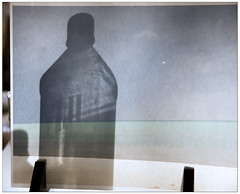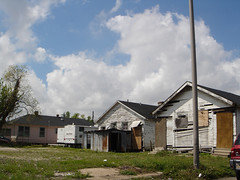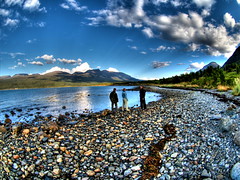 Australia’s ABC Radio National (Background Briefing) recently featured one of those speeches that I consider a huge must-listen no matter who you are. The topic: The US’s place in the world, empire, the occupation of Afghanistan and Iraq, education and the interconnectedness of all these concepts. The speaker, retired US army Colonel Andrew Bacevich, considers himself a conservative and argues against the idea that Afghanistan’s future is so vitally important to the future of the United States. The same goes, in his opinion, for Iraq which he gets into in order to dispel the idea that the invasion of Iraq can now, in any way, be considered a victory.
Australia’s ABC Radio National (Background Briefing) recently featured one of those speeches that I consider a huge must-listen no matter who you are. The topic: The US’s place in the world, empire, the occupation of Afghanistan and Iraq, education and the interconnectedness of all these concepts. The speaker, retired US army Colonel Andrew Bacevich, considers himself a conservative and argues against the idea that Afghanistan’s future is so vitally important to the future of the United States. The same goes, in his opinion, for Iraq which he gets into in order to dispel the idea that the invasion of Iraq can now, in any way, be considered a victory.
Among his great quotes that I think need to be repeated and revisited:
“If the United States today has a saving mission, it is to save itself. Speaking in the midst of another unnecessary war back in 1967, Martin Luther King got it exactly right when he said, ‘Come home, America.’ The prophet of that era who urged his countrymen to take on what he called ‘the triple evils of racism, economic exploitation and militarism’ he remains the prophet today that we ignore at our peril. That Barack Obama should fail to realise this qualifies as not only ironic but also inexplicable.”
“Now for those who despite this, still hanker to have a go at nation-building, why stop with Afghanistan? When not first fix, say, Mexico? In terms of its importance to the United States, our southern neighbour, a major supplier of oil, and drugs among other commodities deemed vital to the American way of life, certainly Mexico outranks Afghanistan by several orders of magnitude. And for those who purport to believe that moral considerations rather than self-interest should inform foreign policy, thereto Mexico qualifies for priority attention. Consider the theft of California. Or consider more recently how the American appetite for illicit drugs and our liberal gun laws, have corroded Mexican institutions and produced an epidemic of violence affecting ordinary Mexicans. We owe these people, big time. Yet any politician or pundit suggesting that the United States ought to commit 60,000 or so US troops backed by a generously funded, multi year effort with expectations of eliminating Mexican drug traffic and political corruption, would be laughed out of Washington. And rightly so.”
Those are only two of many statements that over the last few years it seems much of the public has stopped thinking about. Somewhere along the way the war in Afghanistan became “the good war” that even Obama himself, the king of change, doesn’t want to turn back from. Also towards the end of the speech he talks about education and how little influence the readings and teaching is school that children receive seems to have on them when compared with the influence of all other sources in the course of their daily lives. The conclusion, like the rest of the speech, is highly recommended reading or listening.
 The bottle might look unique and the image might be of a ecological alternative style bottled water company, but is that the whole story? Investigative journalist Anna Lenzer examined Fiji Water in her recent piece for Mother Jones, looking into the details of who owns the company, their environmental record, as well as their relationship with the nation of Fiji and its military government. She joins me to explain her experience and what she learned.
The bottle might look unique and the image might be of a ecological alternative style bottled water company, but is that the whole story? Investigative journalist Anna Lenzer examined Fiji Water in her recent piece for Mother Jones, looking into the details of who owns the company, their environmental record, as well as their relationship with the nation of Fiji and its military government. She joins me to explain her experience and what she learned. It was this week 4 years ago that hundreds of thousands of human beings in the American city of New Orleans were left stranded as the flood waters of Hurricane Katrina rose all around them. It was this week, 4 years ago, that the truth about the lack of plan and the blatant incompetence of a government became clear. And having been born in a country, as well as a world, that has such a narrow and limited understanding of history, it is this week, 4 years later, that I reflect on a great crime committed against hundreds of thousands of people, many who died, and still more who have never really recovered from what took place in New Orleans.
It was this week 4 years ago that hundreds of thousands of human beings in the American city of New Orleans were left stranded as the flood waters of Hurricane Katrina rose all around them. It was this week, 4 years ago, that the truth about the lack of plan and the blatant incompetence of a government became clear. And having been born in a country, as well as a world, that has such a narrow and limited understanding of history, it is this week, 4 years later, that I reflect on a great crime committed against hundreds of thousands of people, many who died, and still more who have never really recovered from what took place in New Orleans. “Do you fear an arms race over the arctic?” the host of The Current Podcast asked an Inuit representative during a recent episode. The gentlemen spoke at length about the problems of the Inuit population in the high arctic and his concerns about the Canadian federal government doing military exercises in the arctic as opposed to giving much needed attention to public services and infrastructure.
“Do you fear an arms race over the arctic?” the host of The Current Podcast asked an Inuit representative during a recent episode. The gentlemen spoke at length about the problems of the Inuit population in the high arctic and his concerns about the Canadian federal government doing military exercises in the arctic as opposed to giving much needed attention to public services and infrastructure. Part II of my interviews with hackers at
Part II of my interviews with hackers at  Australia’s ABC Radio National
Australia’s ABC Radio National